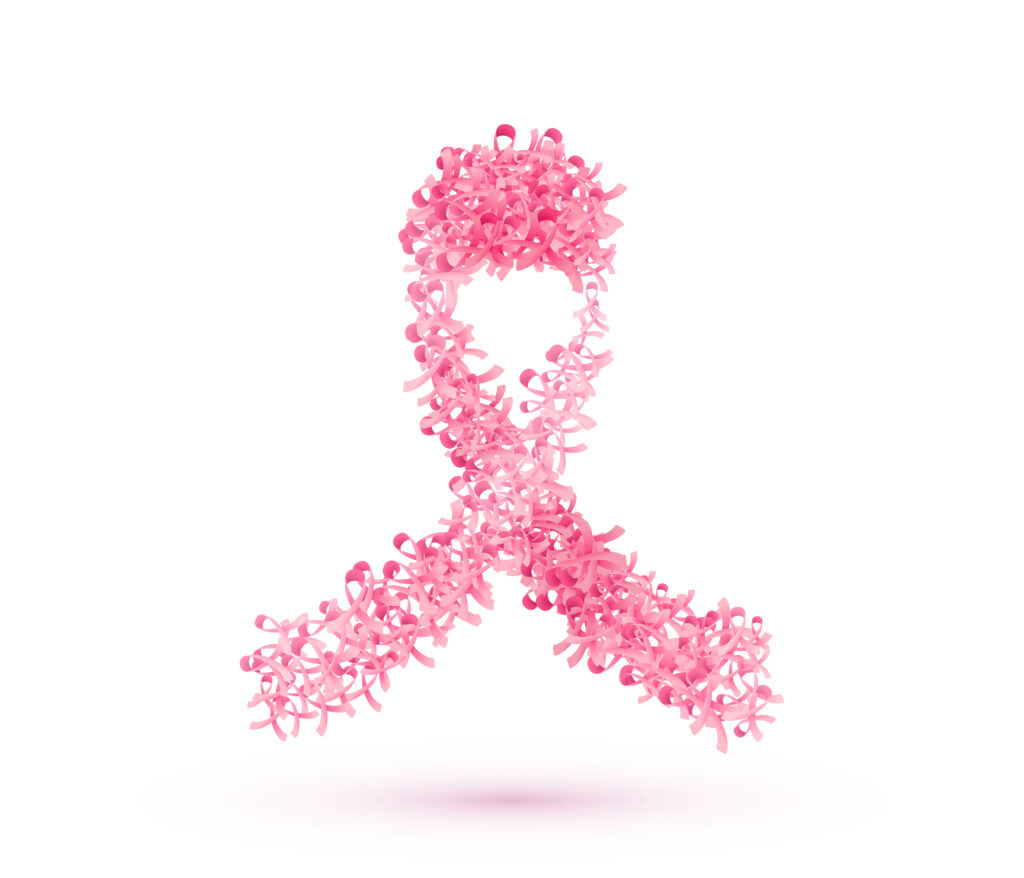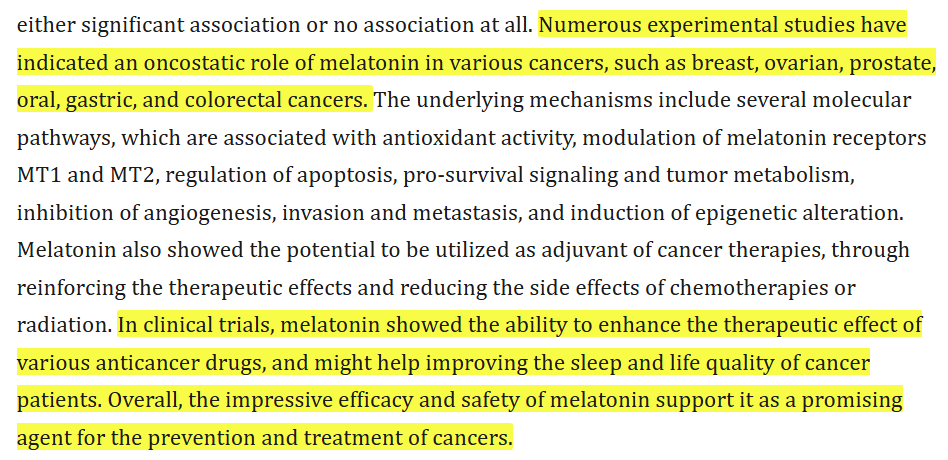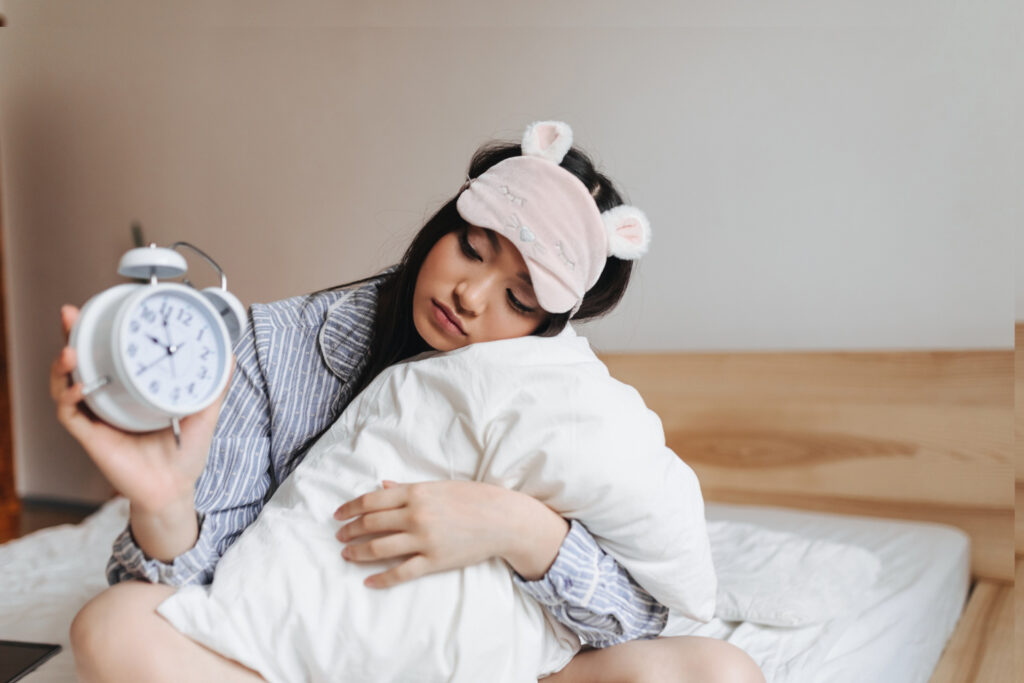The Sleep-Cancer Connection: How Rest Can Protect Your Body?
In my years of working with people battling cancer or chronic illnesses, I’ve learned one truth: the body has an incredible capacity to heal itself when given the right tools.
Sleep is one of those powerful tools and FREE medicines!
It’s easy to dismiss sleep as just another mundane part of life or to glamorize the success stories of people who build empires on three or four hours of rest a night. But what we fail to see is how these habits can open the door to disease, fatigue, and weakened immunity.
Sleep is not optional. It’s a mechanism built into us by nature, the universe, or whatever higher power you believe in. If it weren’t essential, it wouldn’t exist.
Let’s explore how sleep, melatonin, and our body’s natural rhythms connect to cellular health and why neglecting them can increase cancer risk.

Before we start, let me clarify: I’m not here to say that one sleepless night will give you cancer. But its role in prevention, recovery, and overall well-being is massive—and often overlooked. Let’s be logical and approach this with common sense—what I like to call Vitamin C (common sense).
First, we’ll understand what happens when we sleep!
Sleep is a powerful process where your body and mind repair and recharge. It’s not just about closing your eyes and waking up refreshed. Sleep cycles through two key stages:
- NREM (Non-Rapid Eye Movement) sleep: This makes up 75-80% of your sleep and is critical for physical repair and immune function.
- REM (Rapid Eye Movement) sleep: This takes up the remaining 20-25% and is essential for emotional processing, learning, and memory.
Each cycle lasts about 90 minutes, and you need multiple uninterrupted cycles for true rest. Missing out on either stage disrupts your body’s ability to repair and protect itself, affecting your long-term health.
Think of it as your inbuilt repair system. When you’re sleeping:
- Cells repair themselves, helping to heal the damage caused by daily wear and tear.
- Your immune system strengthens, building a defense against illness.
- Inflammation lowers, reducing the risk of chronic diseases like cancer.
- Your body fights fatigue, aiding physical recovery and mental clarity.
- Functions like weight regulation, skin renewal, and hair growth are boosted.
Here’s where it gets fascinating with Melatonin!
As the sun sets, your pineal gland produces melatonin, often called the sleep hormone. But melatonin does much more than help you wind down—it acts as a natural anticancer agent.
Here’s how it works:
- Regulates cell functions: Melatonin helps control cell division and growth, ensuring that abnormal cells are kept in check.
- Balances estrogen levels: Excess estrogen is linked to hormone-sensitive cancers like ER-positive breast and ovarian cancers. Melatonin communicates with your body’s hormones to keep estrogen levels in balance, reducing cancer risk.
- Reduces inflammation: Temporary inflammation is part of healing, but chronic inflammation—often due to poor sleep—damages cells and DNA. This creates a breeding ground for uncontrolled cell division, which can lead to cancer.
When melatonin production is disrupted due to poor sleep habits, these protective mechanisms weaken, leaving the body more vulnerable to cancer.
Research even suggests that melatonin can reduce the risk of cancers like breast, prostate, and colorectal.

It doesn’t stop there—it may also improve the effectiveness of chemotherapy and radiation therapy. But for melatonin to work its magic, you need a consistent sleep-wake routine and minimal light exposure before bed–the circadian rhythm.
How does a disrupted circadian rhythm increase the risk of cancer?
At the heart of this sleep-cancer connection is the circadian rhythm, your body’s natural biological clock. This rhythm regulates over 1,000 functions in the body, including:
- Cell repair: Fixing damaged cells.
- Cell growth: Ensuring proper cell development.
- Cell division: Preventing uncontrolled cell multiplication.
When your circadian rhythm is disrupted—often due to poor sleep habits—it can throw these vital processes out of sync.
Cancer often begins with uncontrolled cell division and faulty repair mechanisms.
A healthy circadian rhythm ensures that faulty cells self-destruct through a process called apoptosis (self-destruction of damaged cells). When apoptosis fails due to disrupted rhythms, abnormal cells divide uncontrollably, leading to cancer.
Dr. Matthew Walker, a leading sleep expert, says:
Chronic sleep deprivation can reduce natural killer (NK) cell activity by up to 70%.
NK cells are a critical part of your immune system, acting as your body’s first line of defense against cancer. Their main functions include:
- Destroying cancer cells: NK cells target and kill tumor cells.
- Preventing cancer spread: They halt the progression of abnormal cell growth.
Without sufficient NK cell activity, your immune system struggles to fight cancer effectively. You could have the best treatments and all the superfoods in the world, but if your NK cells are compromised by poor sleep, cancer may persist or progress.
Also, let’s not forget the link between estrogen and cancer!
Estrogen dominance, a condition where estrogen levels are excessively high, is linked to health issues such as:
- ER-positive breast cancers
- Ovarian cysts
- Endometriosis
Melatonin acts as a natural aromatase inhibitor, helping balance estrogen levels and providing additional protection against hormone-sensitive cancers. While medical treatments like tamoxifen are essential for managing estrogen dominance in specific cases, it’s worth noting that melatonin is designed by nature to assist in this process through proper sleep cycles.
So, why aren’t we talking about sleep and melatonin enough?
Modern medicine does wonders in treating diseases, but how often do we focus on preventing them?
Countless medical journals and scientific papers are shouting about the importance of sleep for cancer, heart health, diabetes, obesity, and more. Yet, as a society, we seem to treat sleep as optional.
Here’s the reality:
- People are sacrificing sleep for social media, OTT platforms, and socializing.
- Work culture often glamorizes long hours, whereas sleep deprivation is seen as a badge of honor.
- The focus on quick fixes, like superfoods or supplements, often overshadows the basic requirement of restful sleep.

Look around, and you’ll notice that sleep deprivation is everywhere. It’s a modern epidemic! It’s easy to find people who struggle with:
- Low energy
- Chronic fatigue
- Health issues like diabetes, obesity, and even cancer
Poor sleep is one of the top four commonalities doctors and nutritionists find in cancer patients!
If you examine the lives of people dealing with chronic diseases, you’ll often find a pattern of poor sleep habits. This isn’t a coincidence—it’s a connection backed by science and experience.
You have the power to influence your health and recovery. Take responsibility for your actions!
It’s time to break the cycle and get started…
Start with boosting melatonin levels. To enhance melatonin production and support your cells:
1. Align with your sleep-wake cycle: Your body naturally produces melatonin when you:
- Sleep at the right time (ideally in sync with your circadian rhythm).
- Dim artificial lights in the evening.
- Avoid screen exposure before bed.
Download our FREE guide to mastering your body’s clock!
2. Eat foods rich in L-Tryptophan: L-tryptophan is an amino acid that serves as a precursor to melatonin. Incorporating the following foods into your diet can support melatonin production:
- Eggs
- Cheese
- Almonds
- Pumpkin seeds
- Chickpeas and hummus
- Goji berries
- Pears
- Lean meats (chicken, fish)
- Turkey
If you must snack late at night (though it’s best to avoid), these foods are better choices as they help promote sleep rather than disrupt it.
3. Exercise regularly: Daily physical activity, especially during daylight hours, helps regulate your circadian rhythm and supports melatonin production.

4. Get natural sunlight exposure: Sunshine is essential for regulating melatonin and resetting your internal clock. Try to:
- Spend time outdoors during the day.
- Absorb gentle sunlight during sunrise or sunset by looking at the sun briefly when it isn’t too intense. Here are 9 scientific reasons to get your daily dose of sunshine!
5. Avoid late meals: Finish eating at least 2–3 hours before bedtime. When you eat late at night, you disrupt this mechanism. Your pancreas isn’t prepared to handle food, leading to:
- Indigestion, bloating, and acidity.
- Blood sugar spikes and insulin resistance.
- Increased risk of diabetes and metabolic disorders.
6. Optimize your gut health: Your gut plays a crucial role in melatonin production.
- Incorporate prebiotics and probiotics: These help restore healthy gut bacteria, essential for hormone regulation.
- Adopt a gut-friendly lifestyle: Eat fiber-rich foods, avoid processed sugars, and stay hydrated.
7. Reduce artificial light at night: Exposure to bright screens before or during sleep disrupts melatonin production. Here’s what to avoid:
- Screen time before bed: Avoid looking at your phone, TV, or computer 45–60 minutes before sleep.
- Middle-of-the-night screen use: Even brief exposure to your phone’s screen can delay melatonin production by two hours, making mornings feel sluggish.
Instead, try alternatives like:
- Wearing blue-light-blocking glasses or using settings on your phone to reduce blue light exposure.
- Breathing exercises.
- Prayer or mindfulness.
- Counting sheep—anything that doesn’t involve screens!
8. Tomatoes for lycopene benefits: Tomatoes are a nutrient-dense superfood that are rich in lycopene. Lycopene is a polyphenol or a plant compound which puts you at a lower risk of prostate, ovarian, lung and stomach cancer.
Other simple tips to improve your sleep cycle:
- Take a warm bath: A hot bath before bedtime helps relax your body and stimulate melatonin production for restful sleep.
- Limit caffeine: Caffeine, especially when consumed late in the day, can interfere with melatonin. If you’re caffeine-sensitive, schedule your last cup several hours before bedtime.
- Embrace meditation: Meditation enhances pineal gland health, which is directly linked to melatonin production. A calm mind also promotes better sleep.
- Turmeric milk: A warm cup of milk with turmeric (golden milk) is a natural, time-tested remedy for better sleep. Make sure the milk is hormone-free and ethically sourced. If it suits your digestion, this simple drink can enhance sleep quality while delivering added anti-inflammatory benefits.
- Dark room: Your bedroom should be dark, cool, and quiet. This is your body’s signal to unwind.
- Manage stress: Emotional stress not only impacts your mental health but also disrupts your sleep and weakens your immune system. Unmanaged stress can create a vicious cycle, where poor sleep worsens stress, and high stress further damages health. Adopt relaxation techniques that promote calm and improve sleep quality like vagus nerve technique, meditation, visualization, deep breathing, and journaling.
- Chamomile tea: Chamomile tea is much more than a calming bedtime ritual. Its secret weapon, Apigenin, has been well-documented in scientific studies for its role in cancer prevention.
Consistency is key. Yes, you can indulge on weekends and enjoy your social life, but aim to get your sleep schedule right at least five days a week.

Should you take melatonin supplements?
For most people, the answer is no—you don’t need melatonin pills if your body is producing it naturally. However, in certain circumstances, such as:
- Chronic sleep disturbances
- Cancer treatment or recovery
- Other severe illnesses
It may be worth discussing melatonin supplementation with your healthcare provider. If you need sleep support, melatonin supplements are often a better choice than traditional sleeping pills, as they come with the added benefit of enhancing your immune system and reducing inflammation.
A special note for parents!
Sleep is vital for children’s growth. Sleep deprivation is often caused by:
- Video games
- Late-night social activities
…directly impacts melatonin, growth hormones, and overall development. Without adequate sleep, no amount of supplements, protein shakes, or medical interventions can fully support a child’s growth.
Prioritize sleep for children:
- Set strict bedtime routines.
- Limit screen time in the evenings.
- Encourage calm, relaxing activities before bed.
The last word: Sleep is the key to your body’s ability to heal and recover!
If you’re currently battling cancer, sleep is non-negotiable. Your immune system does the bulk of its healing work while you sleep. Whether you’re undergoing chemotherapy or radiation, remember this: your immune system needs rest to function optimally and to help you recover.
If you’re putting all your hope into medical treatments but neglecting quality sleep, balanced nutrition, adequate exercise, and emotional well-being, your chances of recovery will be compromised because where there is a lifestyle, there is hope!
So, I urge you to think of sleep not as wasted time but as an investment in your health, your longevity, and your ability to live your best life. Your body works tirelessly for you during the day—give it the rest it deserves at night!
Disclaimer: The information provided in this blog is for educational purposes only and is not intended to be a substitute for professional medical advice, diagnosis, or treatment. Always consult with your healthcare provider before making changes to your sleep habits, lifestyle, or starting any new supplementation, especially if you have a medical condition, are undergoing treatment, or are taking medications.
Also Watch This Video:
If you’re battling cancer, we understand the challenges you’re facing.
Set up a one-on-one consultation with our integrative team to guide you with personalized solutions
or enroll in our specialized Cancer Care Program to empower your journey with science-backed strategies for recovery.
Reach out to us at 1800 102 0253 or write to us at consults@lukecoutinho.com.
|
From a pimple to cancer, our You Care Wellness Program helps you find a way Talk to our integrative team of experts today 18001020253 |










Leave a Reply